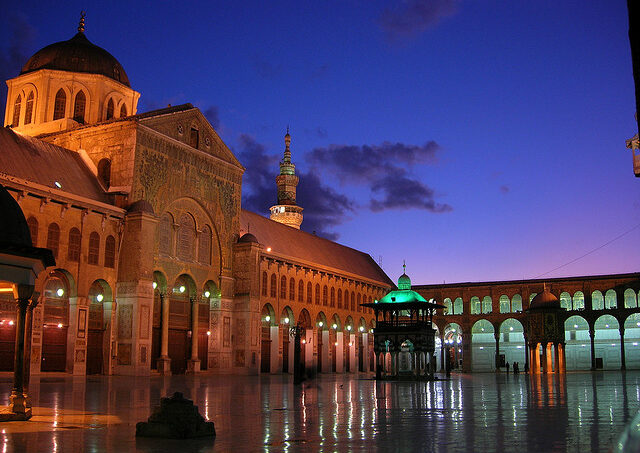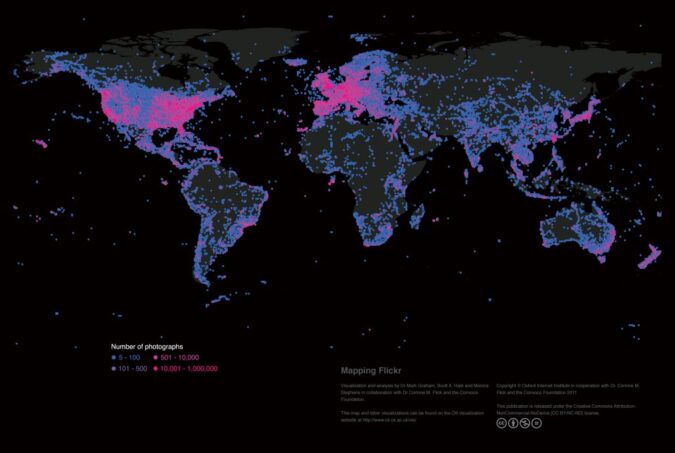
Image of the Umayyad Mosque (Damascus) by Travel Aficionado
Wikipedia currently contains over 9 million articles in 272 languages, far surpassing any other publicly available information repository. Being the first point of contact for most general topics (therefore an effective site for framing any subsequent representations) it is an important platform from which we can learn whether the Internet facilitates increased open participation across cultures—or reinforces existing global hierarchies and power dynamics. Because the underlying political, geographic and social structures of Wikipedia are hidden from users, and because there have not been any large scale studies of the geography of these structures and their relationship to online participation, entire groups of people (and regions) may be marginalised without their knowledge. This process is important to understand, for the simple reason that Wikipedia content has begun to form a central part of services offered elsewhere on the Internet. When you look for information about a place on Facebook, the description of that place (including its geographic coordinates) comes from Wikipedia. If you want to “check in” to a museum in Doha to signify you were there to their friends, the place you check in to was created with Wikipedia data. When you Google “House of Saud” you are presented not only with a list of links (with Wikipedia at the top) but also with a special ‘card’ summarising the House. This data comes from Wikipedia. When you look for people or places, Google now has these terms inside its ‘knowledge graph’, a network of related concepts with data coming directly from Wikipedia. Similarly, on Google maps, Wikipedia descriptions for landmarks are presented as part of the default information. Ironically, Wikipedia editorship is actually on a slow and steady decline, even as its content and readership increases year on year. Since 2007 and the introduction of significant devolution of administrative powers to volunteers, Wikipedia has not been able to effectively retain newcomers, something which has been noted as a concern by…

